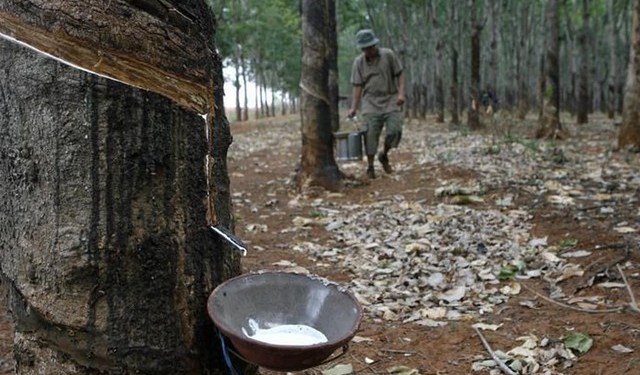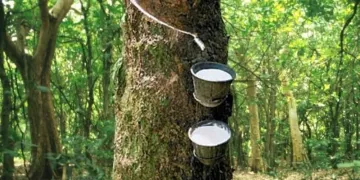SINGAPORE, Sept 10 (Reuters) –
- Japanese rubber futures advanced for the third straight session to touch a one-week high on Tuesday, buoyed by wet weather in some producing regions in China and Thailand, while better Chinese economic data lent further support to the market.
- The Osaka Exchange (OSE) rubber contract for February delivery JRUc6, 0#2JRU: closed up 3.9 yen, or 1.09%, at 360.5 yen ($2.52) per kg.
- The contract hit an intraday high of 363.9 yen, its strongest level since Sept. 3.
- The January rubber contract on the Shanghai Futures Exchange (SHFE) SNRv1 rose 175 yuan, or 1.05%, to finish at 16,780 yuan ($2,357.24) per metric ton.
- Natural rubber prices are gathering pace largely driven by supply concerns during the usual season of peak production, as speculative funds are betting on supply disruptions caused by Super Typhoon Yagi and the abnormally heavy rains that followed in China and parts of Thailand, said Jom Jacob, chief analyst at Indian analysis firm What Next Rubber.
- Top producer Thailand’s meteorological agency warned of heavy rains that may cause flash floods from Sept. 13-15.
- Chinese trade data showing an unexpected acceleration in exports brought optimism over the Chinese economy and its demand prospects, Jacob said.
- China’s exports grew at their fastest pace in nearly 1-1/2 years in August, while imports missed forecasts amid weak domestic demand.
- The yen inched away from one-month highs on Tuesday as investors braced for U.S. inflation data and reassessed expectations of a large Fed rate cut next week.
- The dollar was little changed at 143.10 yen JPY=EBS, surrendering earlier gains but creeping away from last Friday’s one-month lows.
- A weaker Japanese currency makes yen-denominated assets more affordable to overseas buyers. FRX/
- The front-month October rubber contract on Singapore Exchange’s SICOM platform STFc1 last traded at 183.0 U.S. cents per kg, down 0.3%.
($1 = 143.1000 yen)
($1 = 7.1185 yuan)
Reporting by Gabrielle Ng; Editing by Subhranshu Sahu and Mrigank Dhaniwala
Source:
Reuters




























